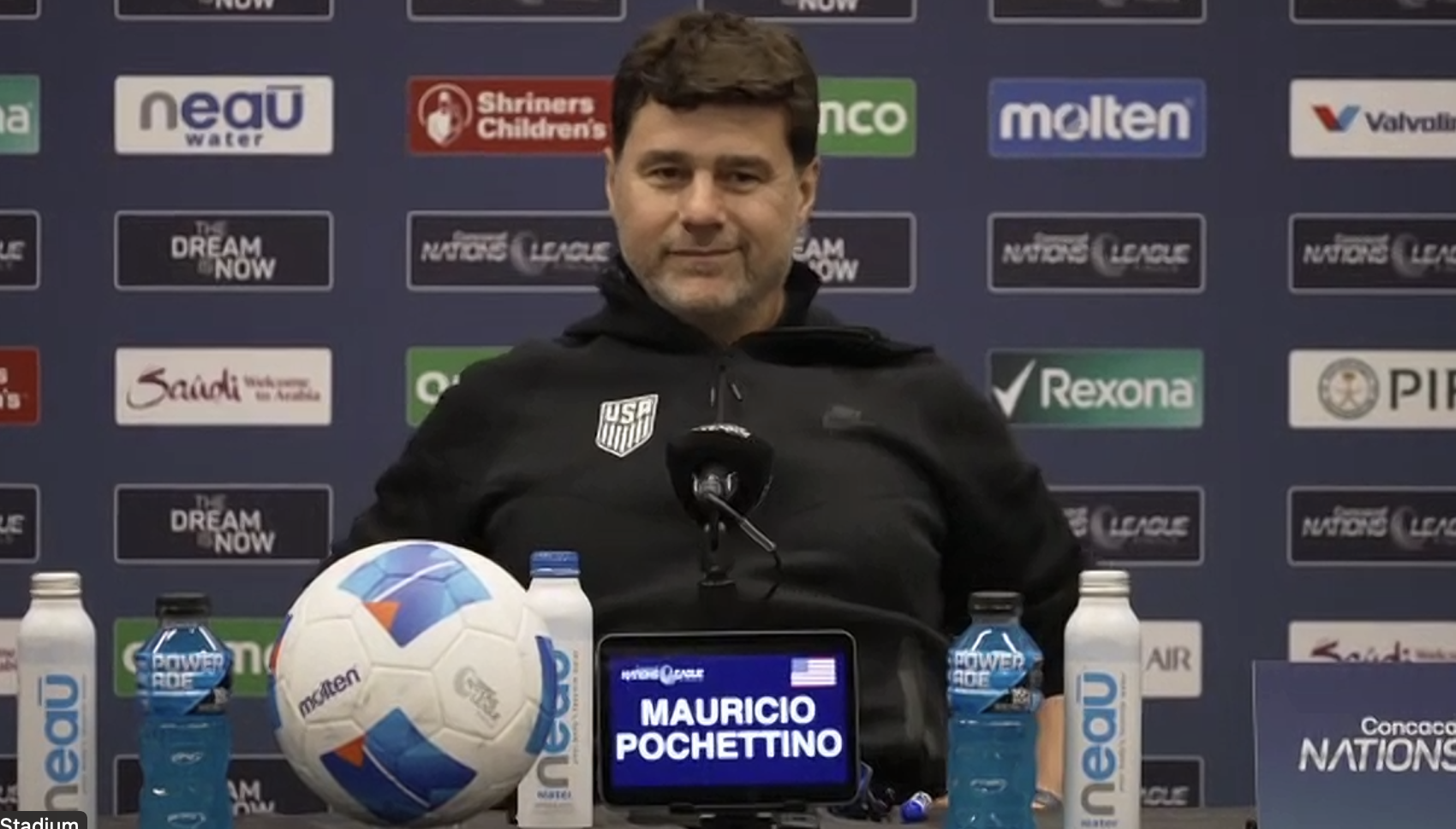When Mauricio Pochettino signed on the dotted line to become head coach of the United States Men’s National Team (USMNT), he would’ve known the challenge was huge.
Ten months into the job, it looks like Mt. Everest, and the vultures are circling, making Poch’s former boss at Tottenham Hotspur, Daniel Levy, look like a pussycat and leading many to ask the question…is the honeymoon officially over for Mauricio Pochettino?
It’s a familiar story, really. A decorated coach arrives with solid (not quite impeccable) credentials – Pochettino’s resume includes transforming Tottenham into Champions League contenders and guiding PSG to domestic dominance – only to discover that American soccer presents challenges that can’t be solved with tactical tweaks and motivational speeches.
Just ask former USMNT coach and World Cup winner Jurgen Klinsmann, who was run out of town despite taking the team out of the Group of Death during the 2014 World Cup.
Recent defeats to Panama and Canada during the Nations League, followed by dispiriting pre-Gold Cup friendlies against Turkey and Switzerland, exposed tactical frailties that have left USMNT legends fuming and unable to hold back – “The coaching is not good enough because the tactics are clearly not clued in”, has become a familiar refrain.
Former internationals Landon Donovan, Charlie Davis, and others have been particularly vocal, suggesting that “they’re not well drilled enough” under Pochettino’s system.
Beyond the tactical side of the game, the cultural dimension cannot be ignored. Pochettino himself has acknowledged that the pressure on the USMNT to perform is “massive”, citing what he felt was an inherent winning mentality within American culture, beyond the soccer world, referencing the Olympics, business, and politics.
Yet his recent admission that the team lacks sufficient “aggression” and “boldness” suggests he’s struggling to harness that very mentality he claims to admire. This is typified by the very public fall out with the great hope of American soccer, captain Christian Pulisic.
Pulisic, citing tiredness, asked to be left out of the Concacaf Gold Cup but declared himself fit enough to play in the two pre-tournament friendlies against Turkey and Switzerland.
Pochettino said: “I think it’s clear that we had some conversation. He contacted us. He explained that he was tired. It’s true that he wanted to come, to be involved in the two friendly games, but I think it’s common sense for us to build a roster for these two friendly games to prepare for the Gold Cup, because for us the Gold Cup is an important tournament.”
“I think, yes, now we need to move on, because what happened after that, I think it’s a lot of noise, but it’s not affecting us.”
“The priorities are to progress, to continue in this continuous evaluation process, to compete, to find the way to create a group of players who feel the same way, where the team is fundamental, the important thing, and that each one wants to put their best at the service of that team.”
So, this isn’t about tactical sophistication – it’s about adaptation. American soccer players, particularly those developed in MLS and college systems, bring different mentalities and skill sets than their European counterparts. They respond to different motivational approaches and thrive under different tactical frameworks.
Pochettino’s club success built his reputation on intense pressing systems and psychological motivation, with world class talent. But international football, particularly with a young American squad that after promising much but now seems to have lost its identity, demands different skills entirely. The question isn’t whether Pochettino can coach – it’s whether he can adapt his methods to unlock the potential of players shaped by a fundamentally different soccer culture.
The World Cup clock is ticking. For Pochettino, understanding America might prove more crucial than understanding football.
Contact the writer of this story at moc.l1751881285labto1751881285ofdlr1751881285oweid1751881285sni@r1751881285etsbe1751881285w.kci1751881285n1751881285

